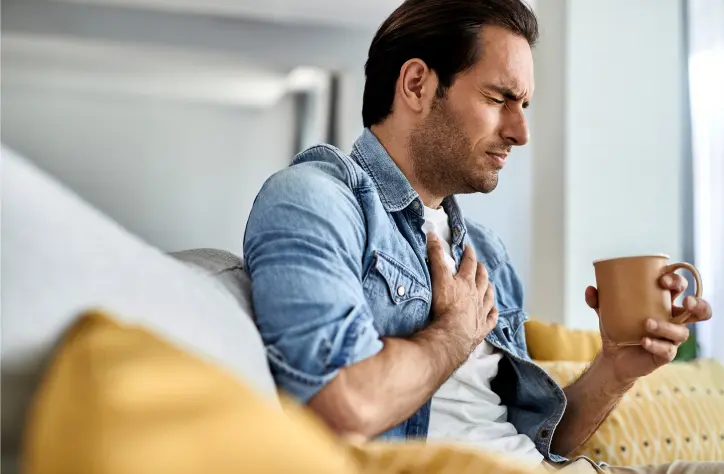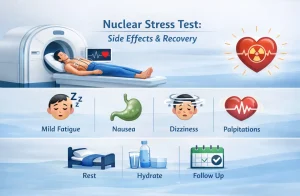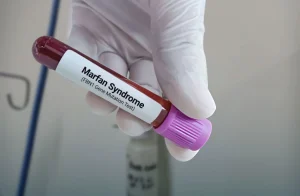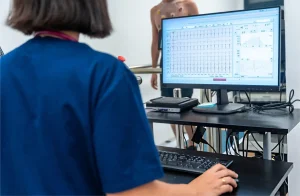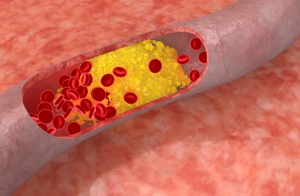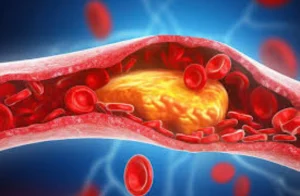If a post-meal heart flutter leaves you feeling uneasy and you have often found yourself asking questions like why do i get heart palpitations after eating then this blog is definitely for you. Heart palpitations after eating are surprisingly common, and while they can be alarming, they’re often harmless. But that doesn’t mean you should ignore them.
So just sit back and relax, We are going to unpack the reasons behind those palpitations, giving you the knowledge to feed confident and take control.
How Common Are Heart Palpitations After Eating?
You might be surprised to learn that that post-meal heart flutter isn’t as unusual as you think. In fact, heart palpitations after eating are quite common. They can happen to anyone, regardless of age or overall health.
While it can be alarming the first time it happens, in many cases, those post-meal palpitations aren’t a sign of something serious. They’re often more of a nuisance than a health crisis.
Prevent heart problems before they start – Schedule a preventive checkup
Contact UsWhat Causes Heart Palpitations After Eating?
So, what’s really going on when your heart decides to do flutter after a meal? Well, it turns out there isn’t always a single cause. Your heart’s rhythm can be affected by a whole host of factors, and some of them come into play more prominently after you eat.
Let’s break it down.
Firstly, digestion itself is a demanding task for your body. When you eat, your heart rate naturally increases to help pump blood to your digestive system. This increase in blood flow can sometimes cause your heart to beat a little irregularly, leading to those noticeable palpitations.
Secondly, certain hormones released during digestion, like adrenaline, can also play a role. These hormones can temporarily speed up your heart rate, especially if you’ve consumed a large meal or foods that are particularly stimulating.
Now, let’s not forget the role of your nervous system. Our gut and heart are connected, and emotions like stress or anxiety can sometimes manifest as physical symptoms, including heart palpitations.
What Food Causes Heart Palpitation After Eating?
Now, let’s dive into the heart of the matter – quite literally! While the causes we discussed earlier are important, the foods and drinks we consume can play a significant role in triggering those post-meal heart flutters.
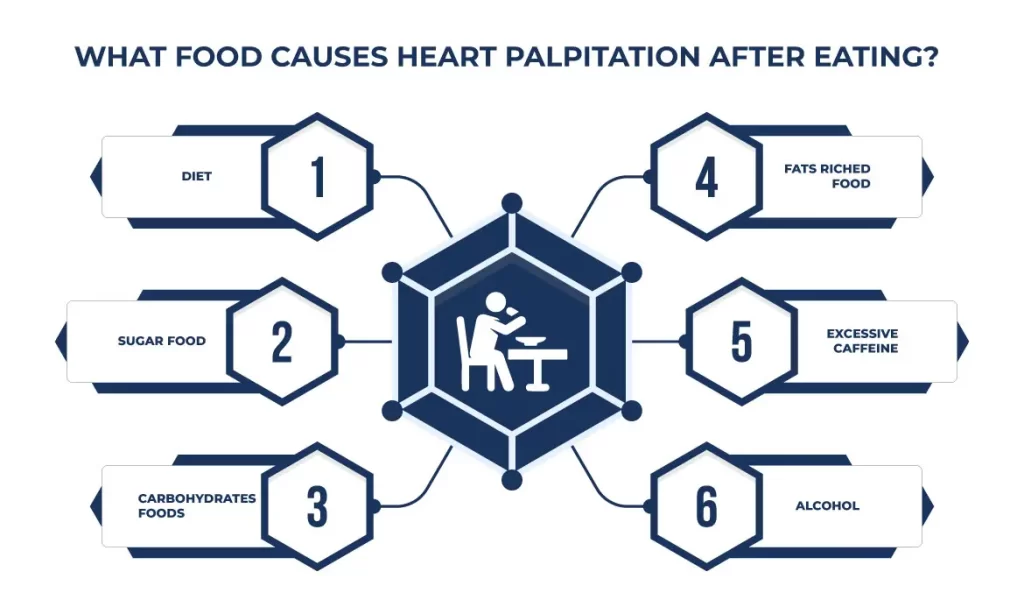
Diet
Your diet isn’t just about maintaining a healthy weight or feeling energized; it directly impacts your heart’s rhythm and function. When it comes to post-meal palpitations, certain dietary patterns and specific foods can be the culprits behind those unwelcome heart flutters.
Sugar Food
We all love a sweet treat now and then, but a diet high in sugar can wreak havoc on your heart. Sugary foods and drinks cause a rapid spike in blood sugar, followed by a crash. This effect triggers the release of stress hormones like adrenaline, which can set your heart racing and increase the likelihood of palpitations.
It’s not just about obvious sources like candy and soda; hidden sugars lurk in processed foods, sauces, and even seemingly healthy options like flavored yogurt or granola bars.
Carbohydrates Foods
Carbohydrates are an essential part of our diet, providing energy for our bodies. However, the type and amount of carbs we consume can affect our heart health. Refined carbohydrates, like white bread, white rice, and sugary cereals, are quickly digested, leading to that familiar blood sugar spike and crash.
This can trigger palpitations in some people. Instead, opt for complex carbs like whole grains, legumes, and vegetables, which are digested more slowly and provide sustained energy without drastic blood sugar fluctuations.
Fats Riched Food
While some fats are essential for our bodies, a diet high in saturated and trans fats can be detrimental to heart health. These unhealthy fats raise cholesterol levels, clog arteries, and increase the risk of heart disease.
This can lead to a less efficient heart, making it more prone to palpitations. Focus on healthy fats like those found in avocados, nuts, seeds, and fatty fish, and limit your intake of fried foods, processed meats, and full-fat dairy products.
Excessive Caffeine
Coffee, tea, energy drinks, and even chocolate – these all contain caffeine, a stimulant that can temporarily boost your heart rate and trigger palpitations. While a moderate amount might be fine for some, others are more sensitive and may need to limit their intake.
Alcohol
While moderate alcohol consumption is generally considered safe for most adults, it can still contribute to heart palpitations. Alcohol acts as a diuretic, meaning it can dehydrate you and disrupt your electrolyte balance. This can strain your heart and make it more prone to irregular rhythms.
Prevent heart problems before they start – Schedule a preventive checkup
Contact UsCan Medication Cause Heart Palpitations?
You might be surprised to learn that those pills in your medicine cabinet could be playing a role in your post-meal heart flutters. While medications are designed to help us, they can sometimes have unexpected side effects, including those pesky palpitations.
Asthma Inhalers: These handy devices often contain medications like albuterol that can stimulate your heart, causing it to beat faster and sometimes irregularly.
Decongestants: If you’re reaching for over-the-counter cold and flu meds, be aware that decongestants often contain pseudoephedrine or phenylephrine, which can also rev up your heart rate.
Antidepressants: Certain types of antidepressants, like tricyclic antidepressants or SNRIs, can sometimes cause heart palpitations as a side effect.
Thyroid Medications: If you’re taking medication for an overactive thyroid (hyperthyroidism), it’s important to monitor your dosage carefully, as too much thyroid hormone can lead to a rapid heart rate and palpitations.
Herbal Supplements: While often considered “natural,” some herbal supplements like ephedra or bitter orange can contain stimulants that affect your heart rhythm.
Other Medications: Even some prescription medications used to treat high blood pressure or irregular heart rhythms can, ironically, sometimes trigger palpitations.
Can Herbal Dietary Supplements Cause Heart Palpitations?
While many people turn to herbal supplements for natural health support, it’s important to be aware that some of these products can also trigger those unwanted heart flutters. Remember, just because something is labeled as “natural” doesn’t automatically make it safe or harmless for everyone.
- Ephedra (Ma Huang): This once-popular weight loss supplement was banned by the FDA due to its potential to cause serious heart problems, including palpitations, rapid heart rate, and even heart attacks.
- Bitter Orange: Often used as an ephedra substitute, bitter orange contains synephrine, a stimulant similar to ephedra that can also raise heart rate and blood pressure.
- Ginseng: While generally considered safe in moderation, high doses of ginseng can cause heart palpitations, especially in individuals who are sensitive to stimulants.
- Guarana: This plant contains caffeine and other stimulants, making it a potential trigger for palpitations.
Effective Ways to Stop Heart Palpitations After Eating
Here are actionable strategies to help you stop those palpitations in their tracks and restore your peace of mind:
Relaxation:
Often, heart palpitations after eating are triggered by stress hormones released during digestion. Counteract this by sipping on a calming herbal tea like chamomile or peppermint. The warmth and soothing properties can help ease tension and slow your heart rate.
Breath Deeply:
Deep breathing is a simple yet powerful tool for calming your nervous system and reducing heart rate. Take a few minutes to focus on your breath, inhaling slowly and deeply through your nose, then exhaling slowly through your mouth. Repeat for several cycles until you feel more relaxed.
Stay Hydrated:
Dehydration can disrupt your electrolyte balance and contribute to palpitations. Make sure you’re drinking plenty of water throughout the day, especially after meals. If you’re sweating heavily or exercising, replenish electrolytes with a sports drink or coconut water.
Prevent heart problems before they start – Schedule a preventive checkup
Contact UsEat Smaller, More Frequent Meals:
Large meals can put extra strain on your digestive system and trigger palpitations. Try eating smaller, more frequent meals throughout the day to keep your blood sugar levels stable and reduce the workload on your heart.
When To Seek Medical Advice for Heart Palpitations After Eating?
If you feel your heart flutter after every meal, then it’s time to seek medical advice.
Know the Red Flags:
- Frequency: Are palpitations happening daily or multiple times a week?
- Severity: Are they intense, prolonged, or accompanied by other symptoms?
- Additional Symptoms: Do you experience dizziness, chest pain, shortness of breath, or fainting?
- Underlying Conditions: Do you have a history of heart disease, thyroid problems, or anxiety?
If you answered yes to any of these, it’s time to schedule a visit with cardiologist.
Ignoring frequent or severe palpitations can be risky. Seeking medical attention ensures timely diagnosis and treatment, potentially preventing complications down the road. Remember, your heart health is in your hands.

